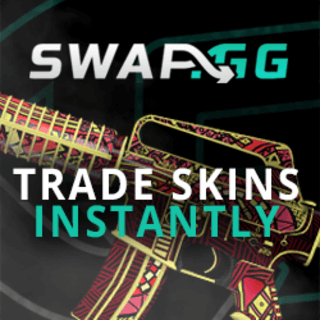The Evolution of Online Betting in the World of CS:GO
The iconic game CS:GO brought a lot of changes beyond the eSports industry. Introducing a whole gambling industry around its skins, CG:GO remains one of the favorite betting games.
As eSports has become a full-fledged industry with professional leagues, gambling here has become a viable market. The industry is growing and keeps attracting more money, which makes it attractive for gambling websites.
Counter-Strike: Global Offensive started an entire gambling movement around its skins. Those are the in-game items being wagered across hundreds of online gambling sites. It has always been legally questionable and brought challenges, still, the demand for skin betting remains high.
The Evolution of the Betting Landscape To eSports
The world of online casinos and betting always follows the recent trends and changes. The platforms are constantly striving to provide better gaming experiences. From a recent review of bahigo casino you can tell that the casino stays up-to-date with their game offerings to ensure they meet the interests of their players. Recently, as eSports grew into a professional sport, the betting landscape started expanding.
Back in the early 2010s, a CS:GO update introduced new items called "skins" that changed the look of players' weapons. First, it was a simple barter system, but then more people started exploring it as a betting opportunity.
Streaming platforms like Twitch also influenced the evolution of esports gambling. This has elevated esports to the level of a professional sport in line with football. Social media helped to create a strong virtual community of esports fans. This enabled the development of professional leagues and tournaments.
CS:GO as a Prominent Platform For Online Betting
As CS:GO got more popular, and the eSports tournaments bigger, professional CS:GO players became household names. As a result, esports betting became connected with the broader gambling culture.
The intense play and a variety of advanced team strategies have made CS:GO a magnet for excited gamers and fans. The trading sites would establish specialized betting sites where players could utilize their skins. Instead of paying money, having skins as a currency felt more lucrative. Since CS:GO was involved in the professional scene, there was a great opportunity for betting on matches.
As it got more traction, popular betting sites got their start. Yet, Valve didn’t authorize them, which led to many controversies and the involvement of the legal teams.
The Rise of Skin Gambling
In August 2013, CS:GO introduced skins. The game developer Valve added weapon skins to the game. That’s how players could personalize the look of their guns. They also introduced a Community Market to buy and sell in-game items using Steam currency.
And this changed the concept of in-game purchases forever. Skin betting created a whole marketplace with gambling websites. which allowed them to engage in trading, betting, and the chance to win coveted in-game skins.
Players can earn skins while playing CS:GO, but they can also use real money to trade and sell them. This creates a new market, where rare skins can be sold for higher prices. You can now find skins worth thousands of dollars, as the price usually depends on skin quality and rarity.
Skin gambling has played a vital role in creating a sense of community among CS:GO players. Trading skins cultivated connections and brought up a shared interest. Players who win skins on gambling sites could sell them for money. This aspect drew criticism and attention from regulators.
The Regulatory Response to Skin Betting
As CS:GO gambling gained traction, the regulators raised legal questions, leading to a series of crackdowns. Since there was no supervision, underage players had full access to gambling. Valve made sure to intervene and issue cease-and-desists to many gambling websites. The company made it clear that the company has no affiliation with them.
Final Thoughts
The ever-adaptable CS:GO gambling community took it upon itself to foster a positive culture. Initiatives that promote fair play and responsible betting ensure an enjoyable gambling environment.
Counter Strike’s example shows the potential that in-game purchases and trading can have. Yet, the challenges that the game developers had to face are possibly the reasons why other games are slower in introducing similar offerings.













